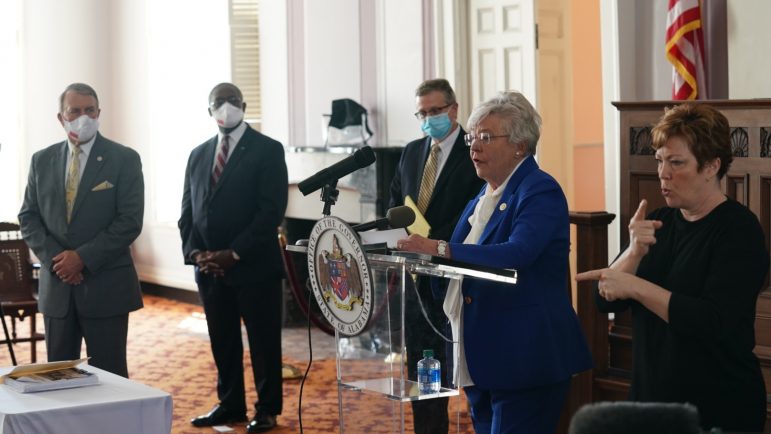Retailers and public beaches can reopen under certain conditions after Alabama Gov. Kay Ivey’s stay-at-home expires on April 30. Ivey made the announcement at a press conference Tuesday morning. The restrictions were intended to curb the spread of the coronavirus.
“We know that what we are announcing today will please some and will make others frustrated that we’re not going further at this time,” Ivey said.
Retailers may operate at 50% capacity. Beach-goers cannot gather in groups of 10 or more and must maintain social distancing by staying six feet away from others. Elective medical procedures will also be allowed to resume.
This new order, which expires on May 15, does not allow reopening entertainment venues, such as night clubs or concert halls, gyms, barbershops and nail salons. Restaurants are still limited to take-out or delivery service only. Non-work gatherings of 10 or more people are banned. Violations of the order are a misdemeanor punishable by a $500 fine.
In cooperation with @GovernorKayIvey, we have created these Safer at Home flyers: What’s New? What’s the Same? https://t.co/tPNCyfKzJz & FAQs About Beaches https://t.co/OdPguL6gxO related to the April 28 emergency order: https://t.co/M16bQSDJxs. pic.twitter.com/91U6dITRtT
— Alabama Public Health (@ALPublicHealth) April 28, 2020
The state recommends, but doesn’t require, residents to stay at home as much as possible and wear face masks in public.
Ivey’s announcement, termed a safer-a-home order, came as a number of states began reopening some businesses. Georgia and Tennessee allowed restaurants to serve dine-in customers Monday. State health officer Dr. Scott Harris said Alabama is not fully reopening right now because it has not had a 14-day decline in confirmed coronavirus cases, one of the criteria set out by the White House. Harris said the number of new COVID-19 cases is relatively flat and Alabama hospitals have been able to handle the case load with no shortage of ventilators or ICU beds.
Public health experts have expressed concern that Alabama does not have sufficient testing for the coronavirus to safely relax restrictions. As of Tuesday, about 1.5% of residents had been tested. Harris said while the state has the capacity to run more tests, the biggest issue is uneven access across the state. He said that’s particularly true in rural areas where some may have to travel long distances for testing.
“We’re working on ways to make it so testing can be done in accordance with where people get their care,” Harris said. “That’s really going to be the solution to the problem.”
Public health experts worry the number of coronavirus cases could spike if rules are relaxed too quickly. Ivey said social distancing, remote work and other practices are still needed to fight the outbreak.
“Let me be abundantly clear. The threat of COVID-19 is not over,” Ivey said. “We are still seeing the virus spread.”

